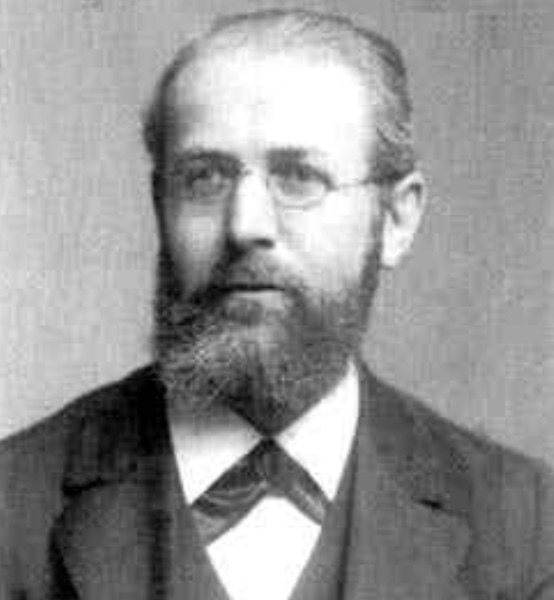
Georg Frobenius was born on October 26, 1849, into a middle-class family in Berlin, Prussia (now Germany). In 1860, a month before his eleventh birthday, Georg entered the Joachimsthal Gymnasium, where he showed an early aptitude for mathematics . After graduating, in 1867, he enrolled at the University of Göttingen, but after one semester, returned to Berlin to attend lectures by Kronecker, Kummer and Weierstrass at the University of Berlin. Under the guidance of Weierstrass, he developed his thesis on the theory of linear differential equations and was awarded a doctorate in mathematics (with distinction) in 1870.
This marked the beginning of his academic career. In the years that followed, Frobenius published many papers on linear differential equations and analytic functions. However, in the latter part of his career, he turned his focus to Group theory. While the Sylow theorems had been proved for permutation groups, Frobenius was able generalize these theorems by proving them for abstract groups. Consequently, Georg Frobenius is best known for his work in group theory and representation theory, having developed the theory of group characters and introduced the idea of group representation–concepts that have become fundamental in modern algebra. Frobenius also did some original work in number theory, proving that If a positive integer n divides the order |G| of a finite group G, then the number of solutions of the equation xn = 1 in G is equal to k*n for some positive integer k .
In 1874, after three years of teaching mathematics at secondary schools, Frobenius was appointed to the University of Berlin as an extraordinary professor of mathematics. However, a year later, Frobenius left Berlin for Zurich where he had been appointed to a professorship at Eidgenössische Polytechnikum. He remained at that post between 1875 and 1892. When Kronecker died at the end of December 1891, Frobenius was elected to the Prussian Academy of Sciences and he became Chair of the Mathematics Department at the University of Berlin. During his tenure at that university, he was a mentor to several notable mathematicians, including Edmund Landau, Robert Remak and Issai Schur, who furthered his work in representation theory.
Georg Frobenius was known to be somewhat “prickly” in his dealings with people. He was an adamant believer in the Prussian educational traditions, and saw his role as a scholar to advance the frontiers of pure mathematics. He regarded applied mathematics as a less rigorous discipline that should be relegated to the technical colleges. During his dominant 25-year tenure at the University of Berlin, his policies gradually undermined the prestige of the mathematics department as capable students gravitated to the competing University of Göttingen. However, policies began to change after the death of Georg Frobenius on August 3, 1917.
Georg Frobenius’s work on group theory and representation theory had a profound impact on the development of modern algebra. His theorems and ideas continue to be foundational in these areas. Insisting that mathematical insight comes from an individual rather than a collaborative effort, Frobenius asserted:
…Organization is of the utmost importance for military affairs, as it is … for other disciplines where the gathering process of practical knowledge exceeds the strength of any individual. In mathematics, however, organizing talent plays a most subordinate role. Here weight is carried only by the individual. The slightest idea of a Riemann or a Weierstrass is worth more than all organisational endeavours. To be sure, such endeavours have pushed to take centre stage in recent years, but they are exclusively pursued by people who have nothing, or nothing more, to offer in scientific matters. There is no royal road to mathematics.
